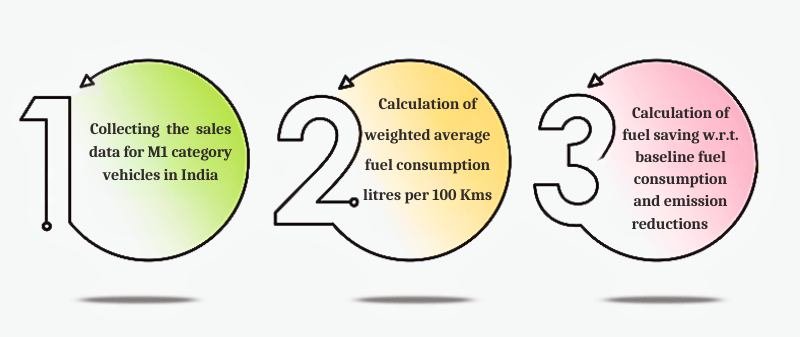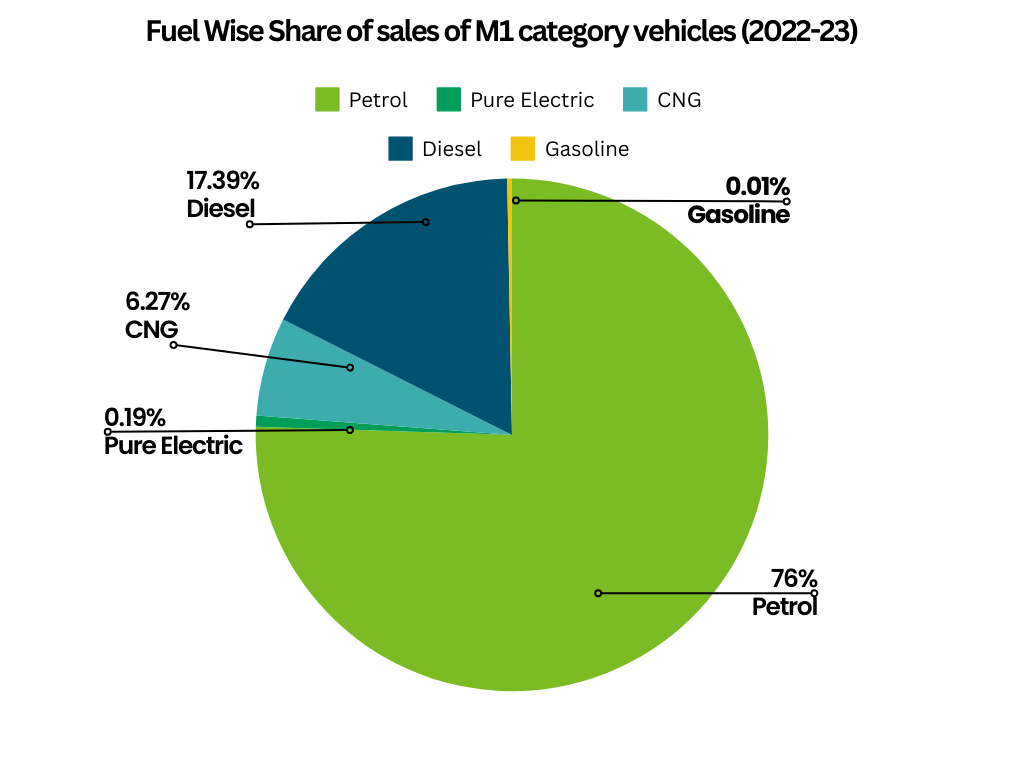Corporate Average Fuel Efficiency (CAFÉ) norms were first notified by the Government in 2017, under the Energy Conservation Act, 2001 to mitigate fuel consumption by lowering CO₂ emissions; aiming to reduce oil dependency and air pollution. These norms are applicable for petrol, diesel, liquefied petroleum gas (LPG), CNG, hybrid, and electric passenger vehicles with gross vehicle weight (GVW) <3500kgs.
It relates the gasoline equivalent corporate average fuel consumption (in litres/100 km) to the corporate average kerb weight of all the cars sold by any original equipment manufacturer (OEM) in a fiscal year. The corporate average fuel consumption is estimated by averaging the standard fuel consumption of all vehicles sold each year. This fuel consumption is measured under standard conditions in nationally accredited labs. There is a limit set on the total emission of CO₂ emitted, as the amount of CO₂ a car emits has a direct correlation with the amount of fuel it consumes.
These standards were introduced in two phases—the first CAFÉ norms stage I fuel consumption standards were introduced effective 2017–18, and the CAFÉ norms stage II standards came into force in 2022–23.
CAFÉ norms for passenger cars:
Methodology to calculate energy savings and C02 reductions under CAFE norms

Energy and emission saving calculations
Step-1: Sales of M1 category vehicles in India in 2019-23
The data for total sales of this vehicle category was collected from the vahan dashboard[ https://vahan.parivahan.gov.in/vahan4dashboard/] as well as data collected from ICAT. The sales data for these years in presented below:
M1 category sale in India in 2019 to 2023
Fuel wise share of sales of M1 category vehicles (FY 2022-23)

Step-2: Calculation of fuel consumption per 100 km
The fuel consumption per 100 km for the vehicles sold during FY 2018-22 is 6.64, 6.65, 5.16 liters per 100.
Value of baseline fuel consumption = 0.0038*weight of vehicle +2.58
The actual fuel consumption in petrol equivalent is calculated by considering the fuel conversion factor of 0.04217 liters of petrol per 100 km, 10,000 km run of a passenger vehicle per year and the total number of registered vehicles.
Fuel savings (in Mtoe) for the FY 2022-23
Annual performance measures (in CO2/km) for various fuel types
Step-3 CO2 Emissions Savings
The CO2 savings is calculated from the achievement in CO2 emissions in g/km and multiplying it with the total number of vehicles sold and assuming 10,000 km of vehicle run in one year. The CO2 emission savings for 2019-20 to 2022-23 are mentioned:
